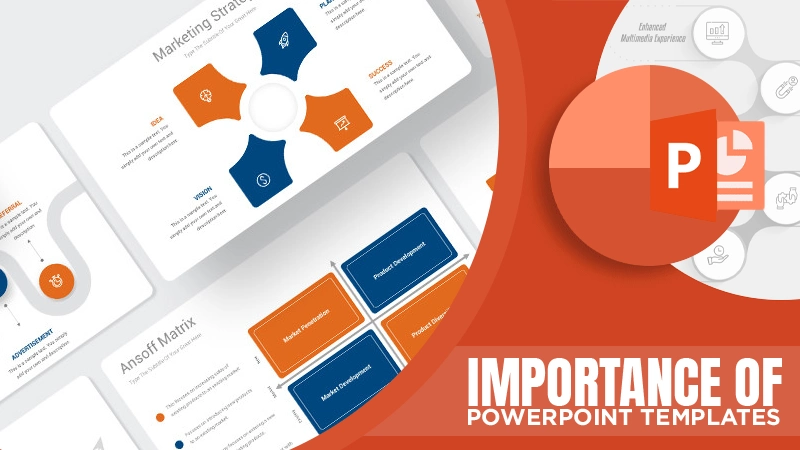Many non-techies still regard AI as some Back to the Future-ish (Part II, mind you) notion – a mystical, unfettered force that will, one day, “enslave the humanity,” as said by 24% of CIO Summit’s interviewees.
The results of the global study conducted by the CIO on consumers’ feelings about AI suggested that only a third of customers felt comfortable working with a business that uses AI for interaction purposes.
Fear of the unknown seemed to be the main reason for skepticism, whether it’s a lack of trust in the safety of personal data or doubt in the possibilities of AI.
Yet, many are unaware that AI has already deeply penetrated our day-to-day lives.
For example, Alexa, the voice assistant, which has over 40 million users in the US alone, and Grammarly, the writing assistant with 30 million users, are both AI-powered software solutions that employ data from interactions with users to self-improve.
Artificial Intelligence has become a significant part of the Web, particularly search engines’ algorithms that impact website rankings.
AI’s main goal is to perform tasks, often time-consuming and mundane, better and faster than humans. It’s a technology created to make our work and life easier – yet, for SEOs and website owners, it’s more of a cause for headaches.
Understanding the role of AI in SEO, and leveraging the new trend, can help online businesses reap major benefits. Therefore, we’ve sat with SEO specialists from the top Miami web design company to discuss the position of Artificial Intelligence in the realm of Search Engine Optimization and share their professional advice on how to implement AI into your SEO strategy.
Read This Also: What is an SEO Company and How Does it Work?
What is AI – And What is Its Role in SEO?
Artificial Intelligence (AI) is an umbrella term that entails machine learning, computer vision, natural language processing, deep learning, and other, still emerging technologies.
In the simplest terms, AI is a simulation of human Intelligence that evolves without human intervention through various mechanisms such as trial and error, observation, and learning.
In SEO, search engine algorithms, such as Google’s BERT and Rankbrain, is powered by Artificial Intelligence to help the engine:
- improve the understanding of the natural language users search for
- determine how the content ranks regarding ranking factors
- decide who sees certain content based on user queries, previous search history, and online behavior
Now that we’ve covered the basics, let’s look at four ways of how leveraging Artificial Intelligence can help boost your SEO strategy.
#1 Tap Into the Potential SEO Opportunities by Leveraging AI
Uncovering potential keywords to optimize (or advertise) for proves to be a major roadblock for many online businesses. Yet, thanks to a number of AI-powered SEO software that appeared in recent years, keyword research is made easier, faster, and effective.
Besides insights on the potential keywords you could target, AI can assist in discovering potential backlinking opportunities.
From analyzing your online competitors’ backlinking profiles to finding websites with content relevant to your site, AI-SEO software offers tremendous help in improving your search rankings.
#2 AI-Powered Content Ideation and Optimization
If we have to single out the most common phrase that echoes during meetings between digital marketers/SEOs and their clients, we will undoubtedly go with “content is king.”
While a website’s home and landing pages’ content is somewhat finite, possibilities for blog content are practically limitless.
Still, many businesses hit a wall in their blog ideation, thus either starting to write low-quality articles or cease publishing on their blog altogether. Both choices are potentially harmful to your online business; however, AI comes to the rescue.
Using AI-powered SEO tools that scour the Web for content created by a particular keyword, enables you to find a variety of content ideas, uncover gaps to exploit, trend industry topics, and much more.
For example, type in a phrase like “software development in Dallas,” and the SEO software will work its AI magic to find content all over the Web that ranks for your keyword.
Creating valuable and attractive content that aids the site’s ranking efforts become easier with insights like these – but let’s not forget about optimization.
The optimum length of the article, keyword synonyms, poor grammar, and keyword repetition are just some aspects of optimizing website content where AI-powered SEO software can come in handy.
#3 AI in the Service of Voice Search
Artificial Intelligence and voice search are among the finest examples of symbiosis in the digital realm.
On the one hand, voice search – such as the above-mentioned Alexa – is an entirely AI-powered creation. Voice search relies heavily on AI, yet, on the other hand, AI helps websites adapt to voice search.
Voice search is unique because of its conversational queries, so AI software actively improves natural language processing, i.e., improving the understanding of word context and nuances.
All this means discovering long-tail keywords searchers use in voice search and creating more conversational-tone content for making the most of your voice search optimization strategy.
#4 AI as the Foundation of UX-Based Search Engine Algorithms
The notion of UX is still rather difficult to grasp fully. It encompasses many – some would argue – subjective ideas of a website, yet it yields very objective and tangible effects on its performance and success.
For search engines, a good user experience is everything. Think of it like this: Google ranks you first for a certain query, and a user clicks on your website; if you meet the user’s needs, they have a positive online experience, both with your website and the search engine that understands the user’s pain points.
However, if the user isn’t satisfied with your site, the search engine will “penalize” you to please the user the next time they perform a search.
In the end, it all comes down to creating a good UX. Luckily, many AI tools for SEO provide you with insights that can help create a better user experience on your website regarding responsiveness, speed, accessibility, navigation, structure, etc.
Similarly, Read: Successful Companies Investing in AI for Better SEO
















